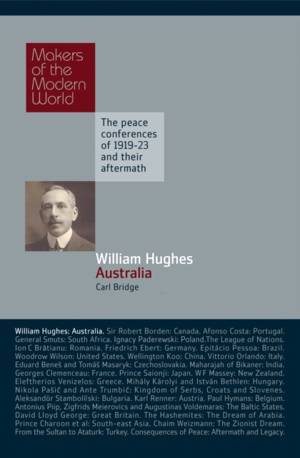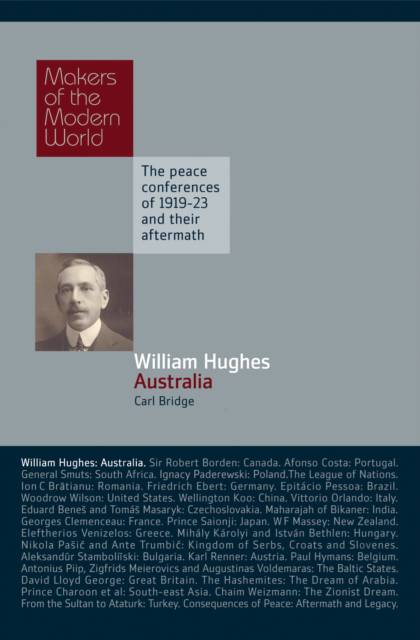
Bedankt voor het vertrouwen het afgelopen jaar! Om jou te bedanken bieden we GRATIS verzending (in België) aan op alles gedurende de hele maand januari.
- Afhalen na 1 uur in een winkel met voorraad
- In januari gratis thuislevering in België
- Ruim aanbod met 7 miljoen producten
Bedankt voor het vertrouwen het afgelopen jaar! Om jou te bedanken bieden we GRATIS verzending (in België) aan op alles gedurende de hele maand januari.
- Afhalen na 1 uur in een winkel met voorraad
- In januari gratis thuislevering in België
- Ruim aanbod met 7 miljoen producten
Zoeken
€ 18,45
+ 36 punten
Omschrijving
The First World War marked the emergence of the Dominions on the world stage as independent nations, none more so than Australia. The country's sacrifice at Gallipoli in 1915, and the splendid combat record of Australian troops on the Western Front not only created a national awakening at home, but also put Great Britain in their debt, ensuring them greater influence at the Peace Conferences. Australia was represented at Versailles by the Prime Minister, the colourful Billy Hughes, whom Woodrow Wilson called 'a pestiferous varmint' after their repeated clashes over Australia's claims to the Pacific Islands its troops had taken from Germany during the War. Hughes was also the most vociferous (though by no means at all the only) opponent of the racial equality clause put forward by Japan. Indeed, it was fear of Japanese expansion that drove Australia's territorial demands in the Pacific.
Specificaties
Betrokkenen
- Auteur(s):
- Uitgeverij:
Inhoud
- Aantal bladzijden:
- 224
- Taal:
- Engels
- Reeks:
Eigenschappen
- Productcode (EAN):
- 9781905791903
- Verschijningsdatum:
- 24/05/2011
- Uitvoering:
- Hardcover
- Formaat:
- Genaaid
- Afmetingen:
- 137 mm x 201 mm
- Gewicht:
- 430 g

Alleen bij Standaard Boekhandel
+ 36 punten op je klantenkaart van Standaard Boekhandel
Beoordelingen
We publiceren alleen reviews die voldoen aan de voorwaarden voor reviews. Bekijk onze voorwaarden voor reviews.









